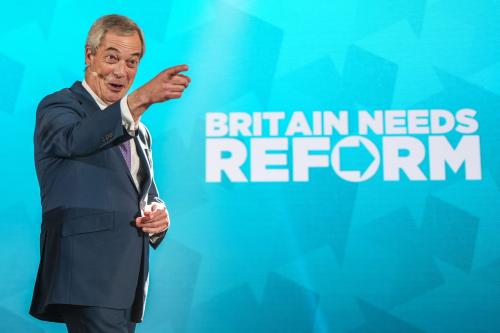Last month’s terrorist attacks in Istanbul have triggered off a much-needed European debate about Turkey’s chances of joining the European Union. According to one view, mostly defended by the continent’s Christian Democrats, bringing in Turkey would amount to importing Middle Eastern problems to a peaceful Europe. For these circles, the terrorist attacks have once again confirmed that Turkey will be a liability for the European Union.
Others differ, however. The British Secretary for Foreign Affairs Jack Straw and German Foreign Minister Joschka Fisher have argued that the European Union, now more than ever, has to extend its hand to Turkey. The Turkish Republic, they argue, is being attacked because it is a secular, Muslim, pro-western and democratic country. Europe, by not embracing this unique example of stability and moderation in the Near East, would display considerable short-sightedness.
Though not a European player, there is no doubt that the United States also perceives Turkey along positive lines. Washington has traditionally been a firm supporter of Turkey’s inclusion in the European Union. The transatlantic rift, on the other hand, is now complicating such US efforts on behalf of Turkey. Even at the best of times Europeans were resentful of American meddling in EU affairs. Now, with the polarisation between Washington and the Franco-German duo over Iraq, American lobbying on Turkey’s behalf would surely backfire.
Ultimately, it is not Washington but the soon to be 25 members of the EU that will say the final word on Turkey. Exactly in one year the EU will have to decide whether to start accession negotiations with Ankara or to once again postpone the decision, by offering kind words but no specific timetable for full membership. Turkey, as I have already argued in this column, has been waiting for forty years and has run out of patience.
Europe is fast approaching a turning point in its relations with Turkey. Turkey is a gigantic challenge, and the direction the EU will take next year will have crucial implications for Europe’s own identity, stability, and foreign policy vision. In all these three areas—namely identity, stability and foreign policy—Turkey will provide the ultimate litmus test for the European Union.
Let’s start with identity. Is Europe a Christian club? The member states can struggle all they want about how secular the European Union Constitution should be. At the end of the day, Turkey’s inclusion or exclusion from the Union rather than intellectual and legalistic debates over the separation of church and state in Europe will determine whether the continent has become truly secular or not. The mirror image of the same identity question is multiculturalism. Europeans may think they are already multicultural thanks to the nearly 15 million Muslims living amongst them. Yet only if a major Muslim country is included in the Union will Europe become officially multicultural. Turkey is therefore the ultimate test for Europe when it comes to its secular and multicultural identity.
What about stability in Europe? Can the Balkans, Turco-Greek relations, Cyprus, and the Caucuses be really stable if Turkey is antagonised? There is a reason why Greece, Turkey’s traditional rival in Europe, has turned into one of Ankara’s ardent supporters in the European Union. Greek politicians have come to realise that a European Turkey is the best neighbour they can have. Without the prospects of EU membership, the Turkish political and economic system could easily go off the tracks of liberalism and democracy. An unstable Turkey could create havoc in the region and this should be the last thing Western Europeans want to see.
Finally, the third reason for including Turkey in the European Union is foreign policy. Can the EU pretend to have a Middle East policy by sidelining Turkey? If the EU is serious about developing a Middle East foreign policy, it cannot do so without Turkey. Thanks to its good relations with the Arab world and Israel, Turkey presents an ideal European venue to jumpstart the Israeli-Palestinian Peace Process in the Middle East. With its borders with Syria, Iraq and Iran, Turkey is also a frontline democratic model that the EU should embrace and promote for the region. Such a positive and constructive European vision for Turkey would also significantly improve Transatlantic relations and create the desperately needed multilateral synergy for a democratic and prosperous Arab world.
Seldom can a country have the ability to play such a crucial role in shaping the identity, security and foreign policy of a whole continent. Turkey, luckily, presents such a case. It is high time Europeans start thinking about Turkey as an asset rather than as a liability.
The Brookings Institution is committed to quality, independence, and impact.
We are supported by a diverse array of funders. In line with our values and policies, each Brookings publication represents the sole views of its author(s).



Commentary
Op-edEurope Needs Turkey
December 9, 2003